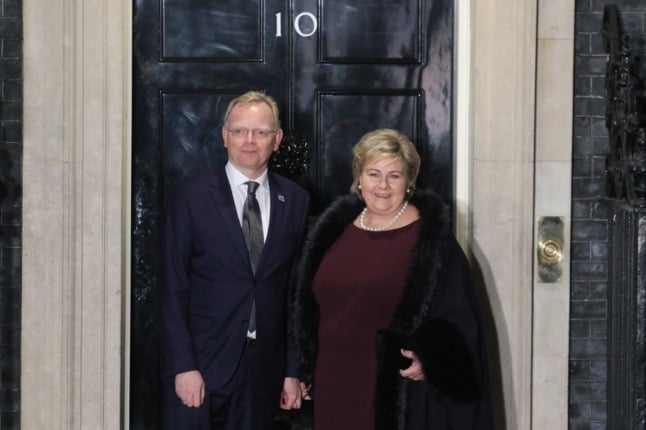For a small country such as Sweden with an export-driven economy, trade has always been a critical issue. So it's no wonder that the Transatlantic Trade and Investment Partnership (TTIP) was the subject of hot debate at Almedalen this week.
But why is the agreement so controversial in in the first place?
The European Commission in Sweden hosted a discussion on the topic on Thursday, featuring EU Commissioner Cecilia Malmström, European Parliament members Christofer Fjellner and Max Andersson, and Anne Ludvigson, CEO of home furnishings and textile company Ludvig Svensson.
Europahuset packed for #TTIP discussion. #EUiAlmedalen #almedalenENG pic.twitter.com/I9mKxlnVVd
— Paul Rapacioli (@paulrapacioli) July 2, 2015
EU Commissioner Cecilia Malmström opened the dialogue by admitting that much of the debate over TTIP is due to complicated relationships with the US.
”I never get questions about our trade deals with Japan or Mexico,” she remarked. ”the US awakens very stong feelings in many countries, and after the Snowden affair there is a certain distrust of the US.”
Christofer Fjellner agreed.
”We call it TTIP. Any time an acronym is used, things get controversial,” he quipped. ”And it's in partnership with the most controversial acronym of all: USA.”
However, Fjellner also argued that such suspicion of the trade agreement is misplaced – and reminiscent of similar discussions decades ago which would now be considered redundant.
”It reminds me of back in the 1990s when we were discussing whether or not to join the EU in the first place,” he said. ”It's the same arguments, and sometimes even the same people bringing them up. It was also controversial. Only this time we're worried about hormones in American meat instead of German.”
“The controversy about #TTIP reminds me of the controversy when Sweden discussed joining the EU,” says @Fjellner #EUiAlmedalen #AlmedalenENG
— Solveig Rundquist (@RundquistS) July 2, 2015
Ludvigson expressed hope that the agreement will come into effect as quickly as possible, explaining that the US is one of the most important markets.
”We need to export more to the US. Swedish industry needs TTIP.”
Max Andersson noted that one potential problem of TTIP was the fact that smaller nations may buckle under pressure from the US on certain points – lowering standards and potentially leading to environmental damage and worsened regulations in many regards.
”There are documents that reveal the pressure US has put on other nations for changing rules, for instance with hormone use in food,” he said. ”The US has much worse regulations than many EU nations when it comes to things like antibiotics and food.”
Malmström quickly refuted the claim.
”That's not how it works,” she responded. ”I would have lost my job a long time ago if we just gave in every time the US didn't like something.”
Tense atmosphere at #TTIP discussion- EU representatives insist they don't give in to US pressure #EUiAlmedalen pic.twitter.com/7dz4Ew7wLy
— Solveig Rundquist (@RundquistS) July 2, 2015
Fjellner agreed and said that if the EU can agree on certain high standards with any other global partner, it would be the US.
”If the US and the EU can agree on a standard, then it can become a global standard. Everyone wins,” he said.
However, he also noted that the same standards may also be a roadblock to reaching an agreement.
”We both have high standards, and neither the EU nor the US is used to compromising.”
Malmström pointed out that trade agreements do not necessarily mean that nations must compromise on their standards, and noted that Europe has been trading with the US since the 1700s.
”And we haven't been worse off for it,” she said. ”The EU has still managed to take enormous steps forward. That won't change with TTIP.”
Malmström added that she hopes TTIP will be a reality by the time that President Obama leaves office.
”The US is our biggest trade partner and it's incredibly important. And with the exception of just a few countries, the EU Parliament is very supportive of this agreement.”
This article was produced by The Local in partnership wih the EU Commission in Sweden.



 Please whitelist us to continue reading.
Please whitelist us to continue reading.